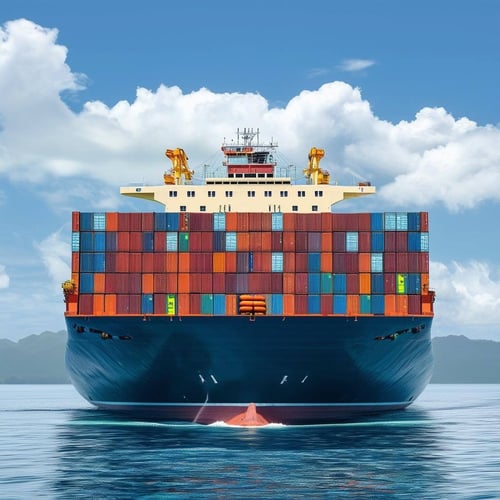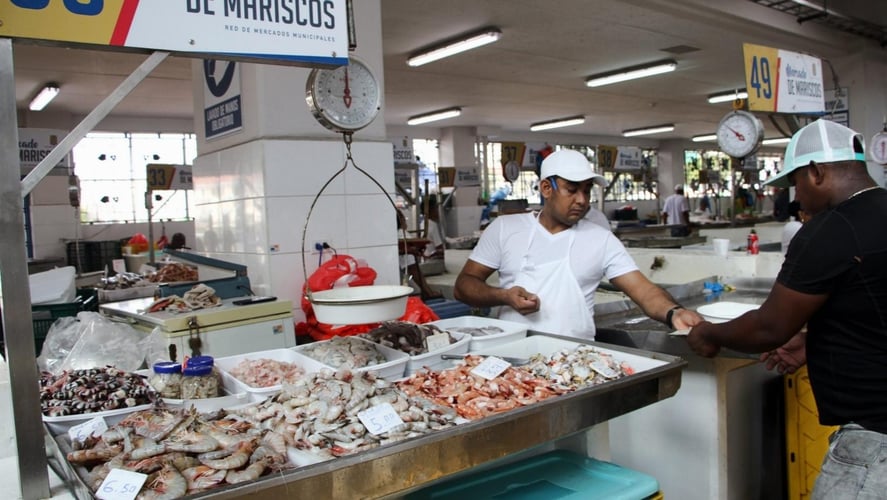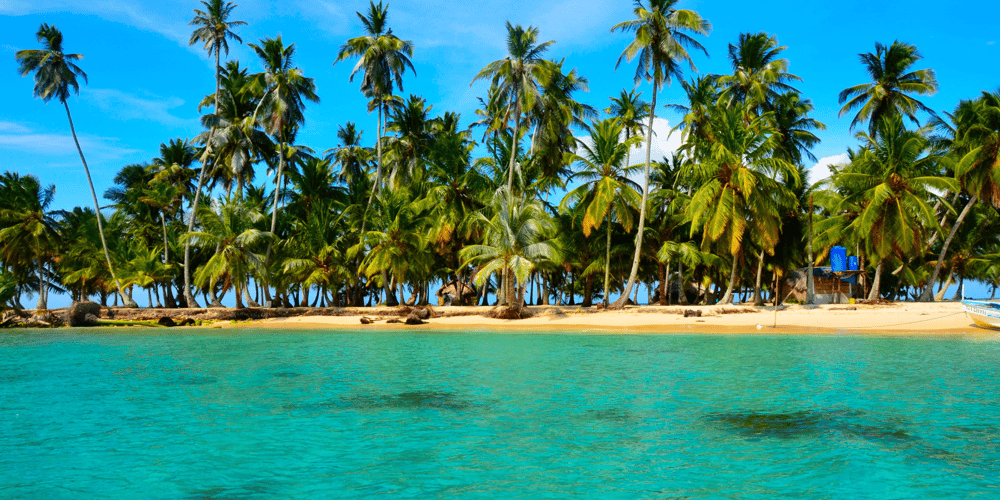Working in Panama for Expats: International Companies, Permits, Salary
Panama is a popular location for international companies due to its strategic location, favorable business climate, and modern infrastructure. Here are a few examples of international companies that have operations in Panama:
-
Maersk: Danish shipping company with a strong presence in the Panamanian market.
-
Hewlett Packard: American technology company with a significant operation in Panama, including a manufacturing plant.
-
Procter & Gamble: American consumer goods company with a presence in Panama, including a manufacturing facility.
-
Nestle: Swiss food and beverage company with a significant operation in Panama, including a manufacturing plant.
-
BMW: German automobile manufacturer with a dealership and service center in Panama.
-
Samsung: South Korean electronics company with a presence in Panama, including a distribution center.
-
Siemens: German technology company with a presence in Panama, including a manufacturing facility.
These are just a few examples of the many international companies that have operations in Panama. Panama's business-friendly environment and strategic location make it an attractive destination for international companies looking to expand their operations.
Work permits in Panama
To work in Panama, non-citizens must obtain a work permit. There are several types of work permits available, depending on the nature of the employment and the length of stay in Panama.
-
Temporary Work Permit (Permiso Temporal de Trabajo, or PTT): This type of work permit is issued for a specific period of time, typically up to one year. It is generally issued to individuals who are working in Panama on a temporary basis, such as consultants or executives.
-
Permanent Work Permit (Permiso Permanente de Trabajo, or PPT): This type of work permit is issued to individuals who are working in Panama on a long-term basis, typically for more than one year. It is generally issued to individuals who have been offered a permanent position in Panama.
-
Self-Employment Work Permit (Permiso de Trabajo por Cuenta Propia, or PTCP): This type of work permit is issued to individuals who are self-employed in Panama, such as entrepreneurs or freelancers.
To apply for a work permit in Panama, individuals must have a job offer from a Panamanian employer and must meet certain requirements, such as having a valid passport and passing a medical examination. The employer is typically responsible for submitting the application for a work permit on behalf of the employee.
It's worth noting that work permits in Panama are generally tied to a specific employer and are not transferable to other employers. If an individual wishes to change employers, they must apply for a new work permit.
Minimum wages Panama
Salaries in Panama vary depending on the industry, level of experience, and education of the individual. On average, salaries in Panama are lower than in many developed countries, but the cost of living in Panama is also lower.
According to data from the International Labor Organization (ILO), the average monthly wage in Panama was $967 in 2020. However, this number can vary significantly depending on the sector in which an individual works. For example, professionals such as doctors and lawyers tend to earn higher salaries, while lower-skilled workers may earn less.
As of 2021, the minimum wage for non-agricultural workers in Panama is $900 per month for an eight-hour workday. For agricultural workers, the minimum wage is $750 per month for a six-day workweek.
Minimum wage rates may vary depending on the sector in which an individual works. For example, the minimum wage for domestic workers is set at $750 per month for an eight-hour workday.
In addition to salary, employees in Panama may also be entitled to other benefits, such as a 13th month salary, or "bonus," which is equal to one month's salary and is paid in December of each year. Some employers may also offer additional benefits, such as healthcare coverage or retirement savings plans.
It's worth noting that the minimum wage in Panama is generally considered to be lower than the cost of living in the country, and many workers earn more than the minimum wage in order to support themselves and their families.
Quincena in Panama
In Panama, the term "quincena" refers to a period of 15 days. In this context, "quincena" refers to the payment of salary for the corresponding 15-day period. For example, an employee who is paid on a biweekly basis may receive their salary in two installments, one at the end of the first 15 days of the pay period and one at the end of the second 15 days of the pay period.
It's worth noting that not all employers in Panama use a biweekly pay schedule. Some employers may pay their employees on a monthly or weekly basis. The frequency of pay dates is typically specified in the employment contract or collective bargaining agreement between the employer and employee.
Workdays in Panama
In Panama, the standard workweek is 44 hours, with a maximum of eight hours per day. The standard workday is from Monday to Friday, with a half-day on Saturday. Some companies may have different work schedules, such as a four-day workweek or a shift system.
The Labor Code of Panama also specifies that employees are entitled to one day of rest per week, which is generally Sunday. In addition, employees are entitled to a minimum of 14 days of paid vacation per year and seven days of paid sick leave per year.
It's worth noting that the Labor Code of Panama applies to all employees, including non-citizens who are working in Panama on a temporary or permanent basis. Employers are required to follow the provisions of the Labor Code and must provide their employees with appropriate working conditions and benefits.
Job opportunities in Panama by sector
Panama is a rapidly growing economy with a range of job opportunities in various sectors. Here are a few industries in which job opportunities are commonly available in Panama:
-
Tourism: Panama is a popular tourist destination, with a range of hotels, restaurants, and tour operators. Jobs in the tourism sector include positions in hotels, restaurants, and tour companies.
-
Construction: Panama is undergoing rapid development, with a number of large construction projects underway. Job opportunities in the construction sector include positions as construction workers, engineers, and project managers.
-
Banking and finance: Panama is a major financial center in Latin America, and the banking and finance sector is a significant contributor to the economy. Job opportunities in this sector include positions in banks, insurance companies, and other financial institutions.
-
Manufacturing: Panama has a growing manufacturing sector, with a number of international companies operating in the country. Job opportunities in manufacturing include positions in factories, as well as roles in supply chain management and logistics.
-
Healthcare: The healthcare sector is an important part of the Panamanian economy, and job opportunities are available in hospitals, clinics, and other healthcare facilities.
-
Technology: Panama's growing economy has attracted a number of technology companies, and job opportunities are available in this sector, including positions in software development, data analysis, and IT support.
Overall, Panama offers a range of job opportunities in a variety of sectors, and the country's growing economy means that new opportunities are constantly emerging.
.png?width=600&height=240&name=Untitled%20design%20(23).png)


